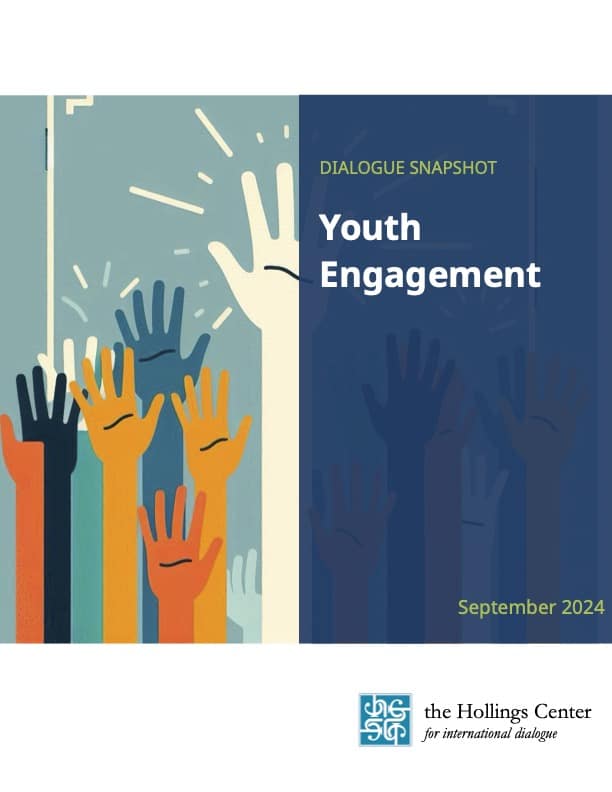DIALOGUE SNAPSHOT REPORT
September 2023
Istanbul, Türkiye
Dialogue Summary
The global youth population is a large demographic force, yet youth engagement in politics remains low. Only 2.6 percent of Members of Parliament are under 30 worldwide. This lack of representation is often seen as disinterest. However, youth have been active in movements addressing climate change, social inequalities, and political reform. Before COVID-19, youth showed a unique ability to mobilize through digital platforms and new approaches to activism. This highlights their strong youth engagement.
In response to the need for more youth engagement in decision-making, the United Nations Security Council passed Resolution 2250 in 2015. This resolution stressed the importance of including youth in discussions on peace and security. In 2023, the United States launched the Youth Democracy Network. This initiative aimed to strengthen global youth connections and promote democratic principles. Despite these efforts, youth engagement still faces many challenges. Authoritarianism, economic crises, and growing inequality continue to alienate youth, leading some toward disengagement or radicalization.
To address these concerns, the Hollings Center hosted a dialogue in Istanbul in 2023. The event focused on the Middle East and North Africa (MENA) region, where youth make up over half of the population. Participants discussed the complex identity of youth, noting that they are often romanticized as peacebuilders or feared as threats. These views create unrealistic expectations or push youth into marginalization. The dialogue stressed that youth engagement is not a single concept. It must be understood through an intersectional lens, taking into account their identities and challenges.
By exploring strategies for promoting youth participation, preventing radicalization, and sharing best practices, the dialogue showcased youth as key agents of change. It emphasized the challenges of disenfranchisement and radicalization due to political and social failures. The discussions highlighted the need for continued efforts to encourage youth engagement in building a better future.
Key Takeaways of the Youth Engagement Dialogue
Youth Engagement is Complex and Varied: The term “youth” is contextually dependent and multi-faceted, often misunderstood and stereotyped as either a “threat” or “peacebuilder.” Participants stressed the need for a nuanced understanding of youth as a transitional, dynamic identity.
Rising Disenchantment and Risk of Radicalization: Growing disenchantment with formal political processes globally, particularly in the MENA region, leads many youth to disengage or turn toward radicalization. Historical failures like the Arab Spring have exacerbated this alienation.
Social Media’s Dual Role: While social media remains a crucial outlet for youth engagement, it is a double-edged sword. It empowers civic mobilization, but remains vulnerable to co-option by authoritarian regimes and extremist groups.
Challenges for Civil Society Organizations (CSOs): CSOs provide vital spaces for youth political engagement but find themselves often overstretched, underfunded, and subject to government surveillance. Over-reliance on CSOs without sufficient resources could lead to further disengagement.
Promising Initiatives for Engagement: Participants highlighted education and digital literacy programs, peer-to-peer networks, mentorship initiatives, and hybrid online/offline engagement strategies. They contended such initiatives foster youth engagement and countering disenchantment.
Youth Must “Own Their Answers”: Rather than simply critiquing older generations, youth must be empowered to take control of their own solutions, fostering positive intergenerational collaboration to build more democratic societies.



